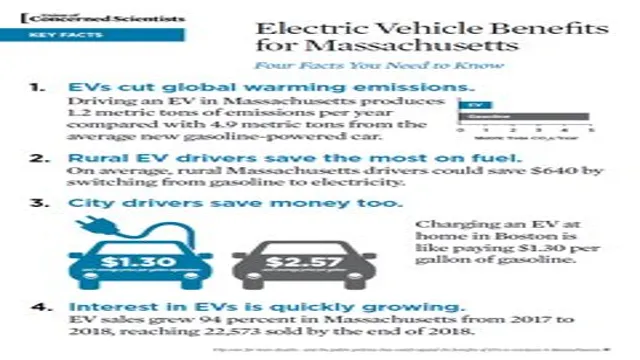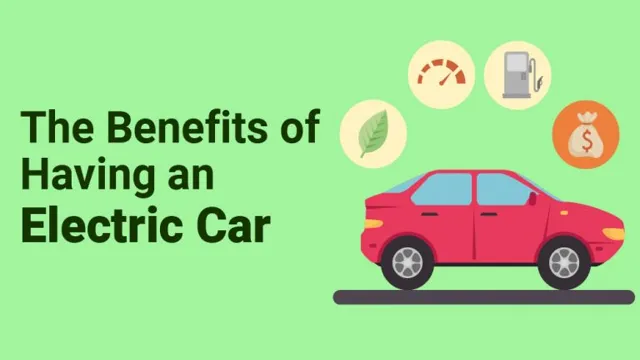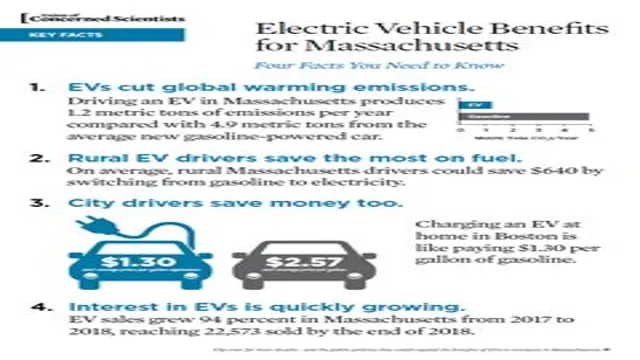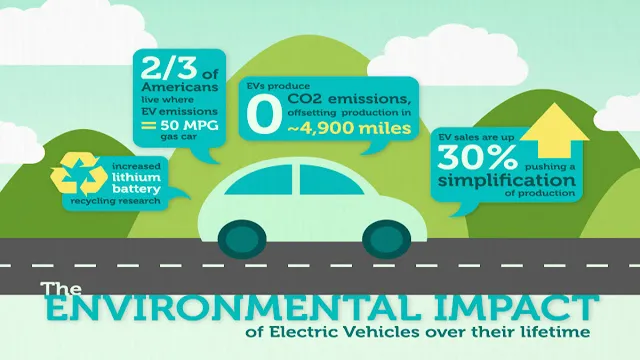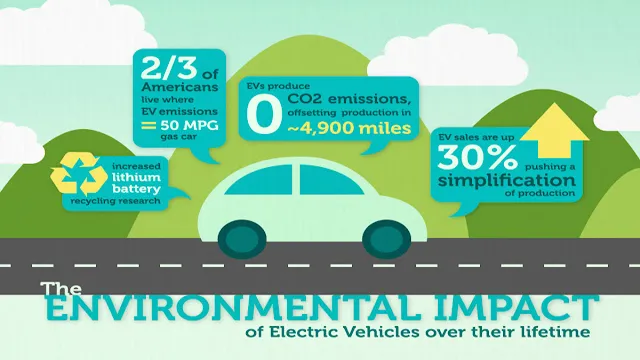Unveiling the Shocking Economic Benefits of Tesla Electric Cars: A Green Revolution with a Golden Opportunity
Electric cars have been a trending topic for quite some time now, and it’s easy to see why. With the growing awareness of climate change and the need for eco-friendly alternatives, electric cars have become an attractive option for many. One of the biggest players in this field is Tesla, which has taken the market by storm with its sleek designs and advanced technology.
However, Tesla’s appeal is not just limited to its aesthetics or environmental credentials – there are several significant economic benefits to owning a Tesla electric car. So, why should you consider investing in a Tesla vehicle, and how can it positively impact your financial situation? Let’s find out.
Low Cost of Ownership
When it comes to owning an electric car, one of the biggest concerns is the cost. However, with Tesla’s electric cars, not only are they environmentally friendly, but they also provide economic benefits. Firstly, owning a Tesla electric car means no more costly petrol or diesel fill-ups, which can save you thousands of dollars over the years.
Additionally, Tesla’s vehicles require less maintenance than traditional gas-powered cars, meaning fewer trips to the mechanic and lower repair costs overall. Charging your Tesla at home with the included charger is also cheaper than filling up at a petrol station. Plus, with the added bonus of fewer emissions, you may also be eligible for tax credits and incentives from your government.
So not only will you be helping the environment, but you will also experience long-term cost savings when owning a Tesla electric car.
Electricity is Cheaper than Gasoline
Electricity is quickly becoming the preferred method of powering our vehicles, and for good reason. The low cost of ownership when it comes to electric cars is a huge advantage over traditional gasoline vehicles. While the initial cost of an electric car may be higher, the long-term savings are substantial.
With gasoline prices constantly fluctuating and likely to continue rising, electric car owners can benefit from stable and predictable energy costs. Not only that, but electric cars require less maintenance, saving car owners money in the long term. The convenience of charging at home or at public charging stations also means that electric cars are becoming increasingly practical for daily use.
Overall, the low cost of ownership of an electric car makes it a smart and economical choice for car buyers who are looking to save money in the long term.
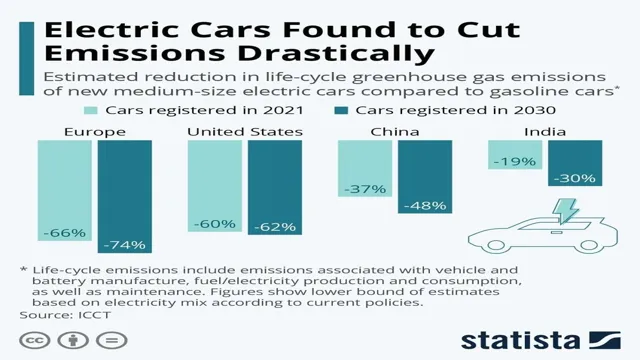
Maintenance Costs Lower than Gas Cars
When it comes to owning a car, one of the biggest expenses can be the maintenance costs. However, electric cars have been found to have lower maintenance costs than their gas counterparts. This is because electric cars have fewer parts that can wear out and need replacing.
For example, electric cars don’t require oil changes, which can save car owners hundreds of dollars each year. Additionally, electric cars have regenerative braking systems that can prolong the life of the brake pads. Overall, the low cost of ownership is a significant factor to consider when deciding to invest in an electric car.
Not only will you save money on fuel costs, but you’ll also save money in the long run on maintenance and repairs.
Tax Incentives
If you’re considering buying a Tesla electric car, one of the biggest advantages is the tax incentives. Not only will you be helping the environment, but you’ll also get some economic benefits as well. In the United States, federal tax incentives for electric vehicles can range from a few thousand to several thousand dollars depending on the model and the battery capacity.
Many states also offer their own incentives, such as rebates or tax credits. In addition to these financial incentives, driving an electric car can save you money on gas and maintenance costs over time. Plus, you’ll have the peace of mind of knowing you’re doing your part to reduce emissions and cut down on air pollution.
With all of these advantages, it’s no wonder more and more people are turning to Tesla for their next car purchase.
Federal Tax Credit for Electric Cars
One of the biggest incentives for purchasing an electric car is the federal tax credit that is available to buyers. This credit can be worth up to $7,500, depending on the make and model of the vehicle. The tax credit is intended to encourage more people to switch from gas-powered vehicles to electric ones, which are better for the environment and can save drivers money in the long run.
It’s important to note that this credit is only available to those who purchase a new electric car, and that it begins to phase out once a manufacturer sells 200,000 units in the US. Additionally, the credit cannot be claimed on leased vehicles, as the lessor is the one who ultimately owns the car. However, overall, the federal tax credit for electric cars is a significant incentive that can make purchasing an electric car much more affordable.
And with so many new electric vehicle models hitting the market, now could be a great time to take advantage of this credit and switch to electric.
State Incentives for Electric Car Owners
As the world shifts towards environment-friendly alternatives, owning electric cars comes with its perks. Most state incentives offer tax incentives to electric car owners, which helps reduce the cost of owning one. Tax incentives vary from state to state, but they typically range from $1,000 to $5,000.
These incentives allow electric car owners to deduct a portion of the cost of their vehicle from their state income taxes, or in some cases, receive a cash rebate. Apart from tax incentives, some states also offer perks like free parking, carpool lane access, and reduced vehicle registration fees to electric car owners. These incentives not only reduce the financial burden of owning an electric car but also make it more convenient for owners to use them.
If you are considering purchasing an electric car, it is worth looking into the tax incentives and perks available in your state.
Resale Value
When it comes to the economic benefits of Tesla electric cars, the resale value stands out. Unlike traditional gas-powered cars, Teslas retain their value remarkably well over time. This is due to several factors, including the durability of their battery pack, the near-zero maintenance requirements, and the constant software updates that keep them current and efficient.
As a result, Tesla owners can expect to receive a high resale value for their vehicles when it’s time to upgrade. This is a stark contrast from the commonly held belief that cars are a depreciating asset. The ability to recoup a significant portion of a Tesla’s initial cost years down the road is one of the many reasons why owning a Tesla may be a sound economic decision.
Tesla Cars Retain Value Better than Gas Cars
When it comes to resale value, Tesla cars outperform gas-powered cars on the market. This is because of several factors, including their advanced technology, strong brand reputation, and durability. Unlike conventional cars, Tesla vehicles lose much less value over time due to their high-tech features and reliable performance.
Additionally, Tesla’s battery technology sets it apart from other cars. Although batteries lose some capacity over time, Tesla vehicles have a long battery life and offer a range that is more than enough for most drivers. This means that even as the car ages, it remains functional and desirable to buyers in the used car market.
Ultimately, Tesla vehicles’ resale value benefits both owners and the environment, as they can recoup more of their investment when it’s time to sell, and the cars themselves can be recycled and repurposed for years to come.
Long-term Savings
There are numerous economic benefits when it comes to owning a Tesla electric car. While the initial cost can be higher than traditional gas-powered vehicles, you’ll save money in the long term due to the significant decrease in fuel costs. Rather than filling up at the gas station, you’ll be able to charge your car at home or at a Tesla Supercharger for a fraction of the cost.
Additionally, electric cars require less maintenance as they have fewer moving parts that can wear down or break, meaning you’ll spend less money on repairs and upkeep. Finally, owning a Tesla can also help you save money on taxes and incentives. Some states offer tax credits or exemptions for electric car owners, which can significantly lower the cost of your vehicle.
Overall, investing in a Tesla electric car is a smart financial decision that can provide significant long-term savings while also helping to reduce your carbon footprint.
Electric Cars Have Lower Lifetime Costs Than Gas Cars
Electric cars are gaining popularity due to many reasons, including their lower lifetime costs compared to gas cars. Although electric vehicles may have a higher initial cost, they save money in the long run due to the reduced maintenance and operating expenses. With no need for oil changes, tune-ups, or replacing parts such as spark plugs and transmission fluids, electric cars can save money over time.
Furthermore, charging an electric car is much cheaper than filling up with gasoline, and the cost of electricity is typically more stable than gasoline prices. In addition to the cost savings, electric cars can also be eligible for state and federal incentives, such as tax credits, rebates, and HOV lane access. All these factors combined make electric cars a smart choice for those who are looking for long term savings in their lives.
So if you want to make a smart investment, consider switching to an electric car to save money in the long run.
Environmental Benefits
When it comes to the economic benefits of Tesla electric cars, environmental factors must be taken into account. Traditional cars emit harmful greenhouse gases that contribute to climate change and degrade air quality, leading to negative health outcomes. Tesla electric cars, on the other hand, produce zero emissions while driving, reducing their environmental impact significantly.
Additionally, with energy-efficient features such as regenerative braking and solar-powered charging stations, Tesla electric cars can further reduce energy consumption and costs for drivers. By choosing electric vehicles like Tesla’s, drivers can save money on gas while also helping to protect the environment and promote a cleaner, healthier future.
Conclusion
In conclusion, investing in a Tesla electric car isn’t just good for the environment, it’s also good for your wallet. Thanks to the incredible efficiency of electric motors, you’ll save on fuel costs in the long run, and on top of that, you may even be eligible for some sweet tax incentives. Plus, when you factor in the potential for increased productivity from avoiding trips to the gas station and reduced maintenance costs, it’s clear that Teslas are not only the cars of the future, but they’re also the smart economic choice for the present.
So go ahead and join the electric revolution – you won’t regret it!”
FAQs
What are the economic benefits of owning a Tesla electric car?
Owning a Tesla electric car can result in substantial savings on gas, as electricity is typically cheaper than gasoline. Additionally, Tesla owners can take advantage of tax incentives and rebates, further reducing the overall cost of ownership.
Does owning a Tesla electric car have a positive impact on the environment?
Yes, owning a Tesla electric car can greatly reduce your carbon footprint and contribute to a healthier planet. Tesla cars emit zero emissions, helping to combat climate change and reduce air pollution.
Can Tesla electric cars save you money in the long run?
Yes, Tesla electric cars can save you money in the long run due to lower maintenance costs. Electric cars have fewer moving parts than gas-powered cars, which means there are fewer components to maintain and repair.
How does owning a Tesla electric car benefit the economy?
Owning a Tesla electric car benefits the economy by creating jobs in the clean energy sector. Tesla’s mission to accelerate the world’s transition to sustainable energy is driving innovation and job growth in areas such as battery technology and renewable energy.

